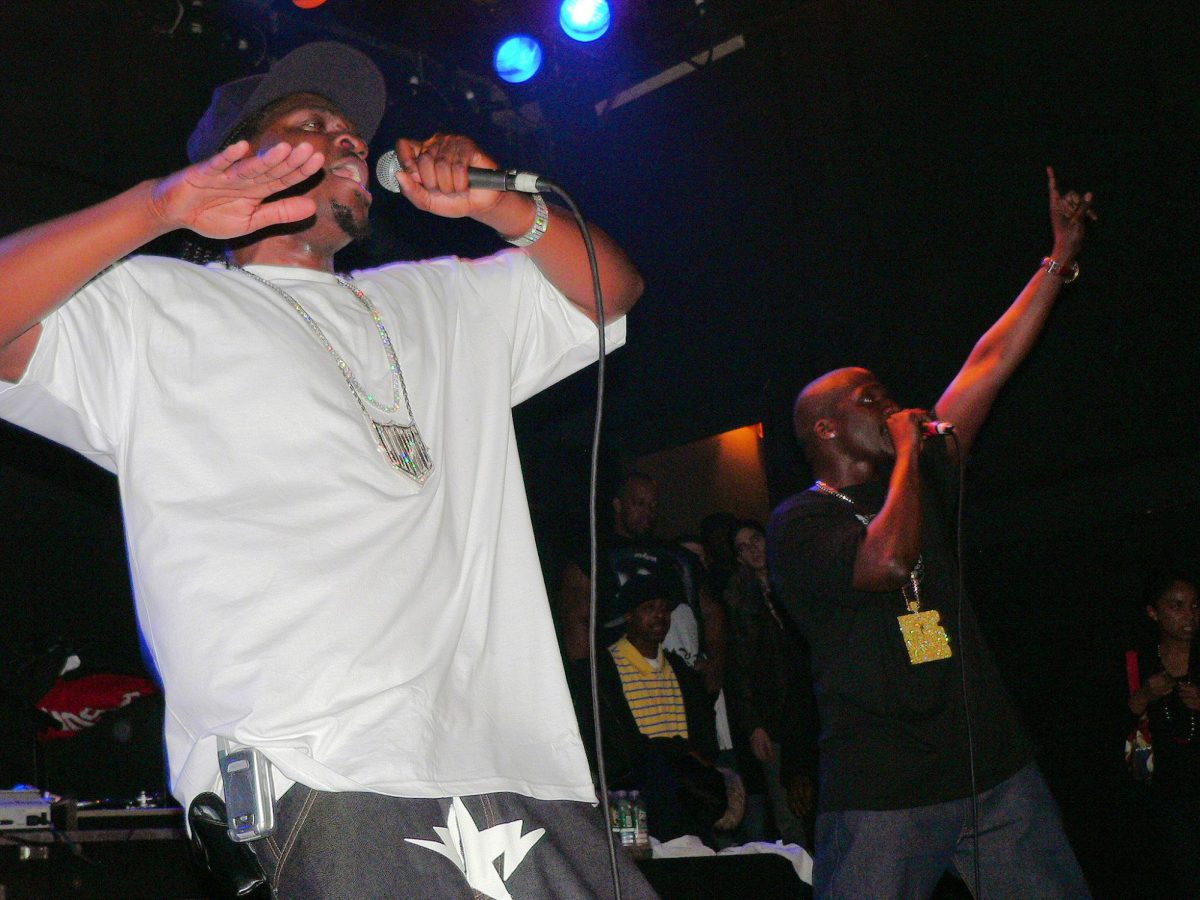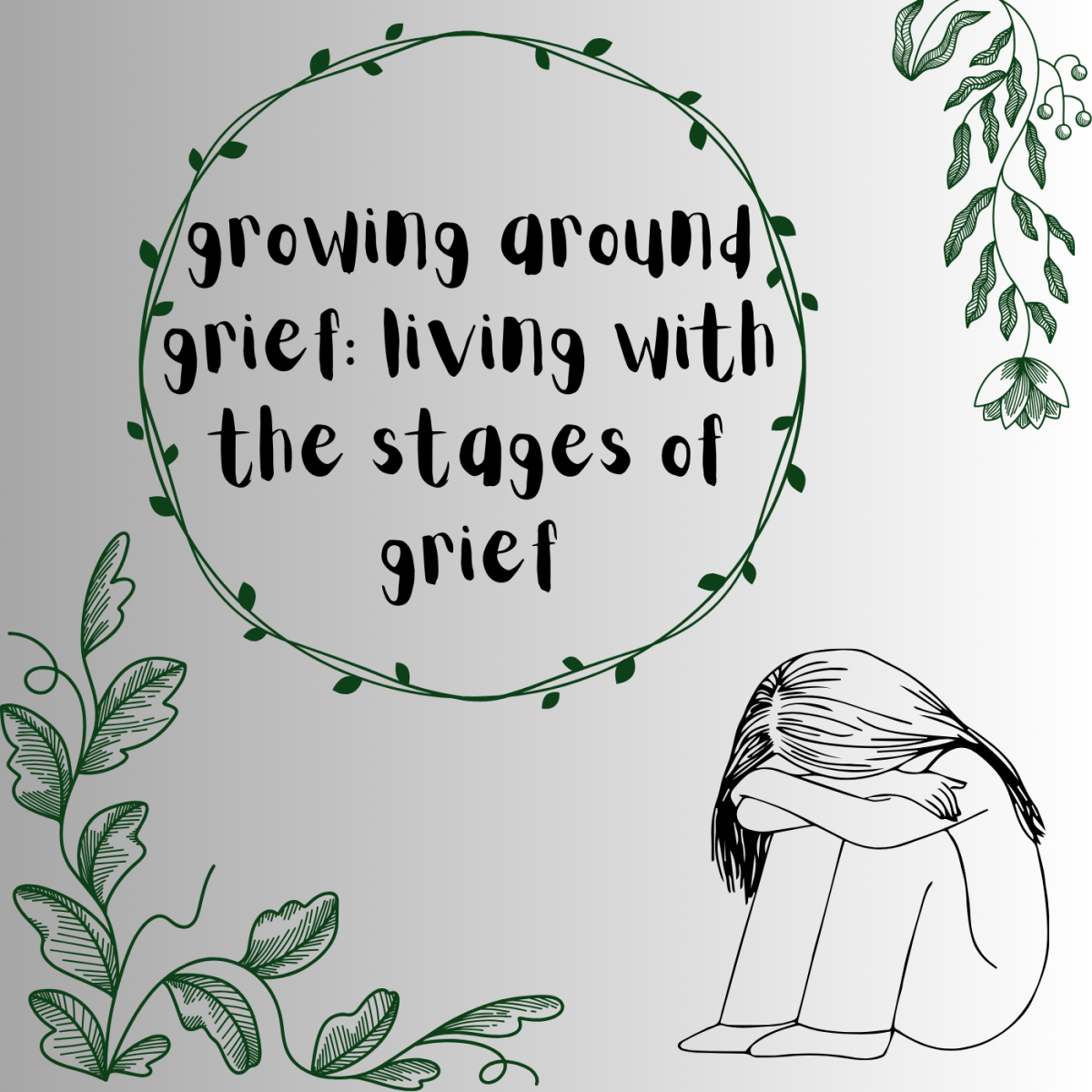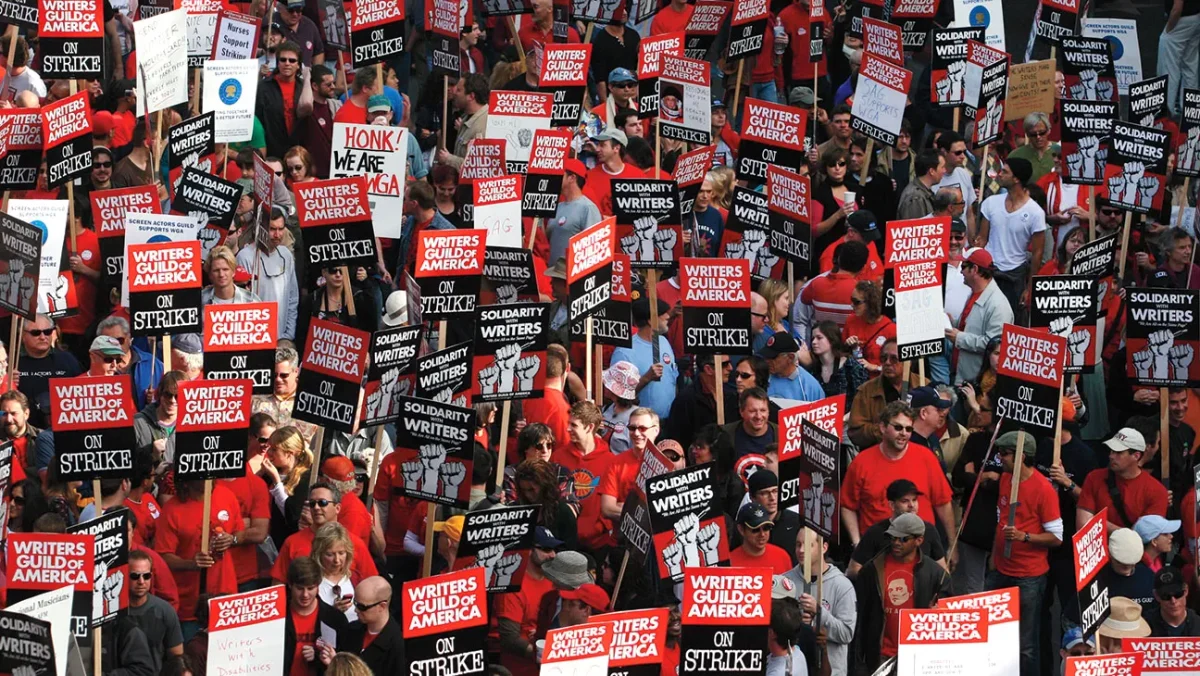These were the words that came from Kendrick Lamar’s mouth, acting as a subliminal rebuke of Drake’s claims that “Round 2” of their beef would soon commence. This was also part of the NFL’s Super Bowl LIX commercial, announcing Lamar as the headliner for the Halftime Show.
Thinking about it, this selection is actually quite ironic, considering how Drizzy was rapping that he was “Big as the Super Bowl” on another track almost a year before. Or how J. Cole referred to himself, Drake, and Kendrick as “the Big Three.”
Let’s admit it: the music industry, and possibly the world, has a spotlight on Kendrick in the wake of this year’s feud with Drake. So can he be declared the definitive winner of this summer’s most talked-about smackdown?
“Kendrick released more successful and impactful disses,” said sophomore Vihaan Shah, when asked if Kendrick won the beef.
Since the middle of summer 2024, Kendrick’s “Not Like Us” has been the song of the year. We’ve all seen the videos of people at parties singing it, street dancers doing numbers using it, or the shot of Kendrick staring down an owl, representing OVO, Drake’s label and company.
“I think it’s Kendrick who won, ‘cause he released more disses,” echoed freshman Aaryan Bivishbal.
In fact, “Not Like Us” has been played so much that it even surpassed “Hit ‘Em Up,” another landmark diss track, in Spotify streams. This is another case of irony, as Drake had been the industry machine for years since his debut, cranking out hits and melodies whenever he had to. Now he has been brought to a place where less people listen to his new music for the music itself, but rather to a diss against him.
Regardless of who you think won, this isn’t the first time two industry giants turned their rivalry into entertainment for the masses, and it’s certainly not the first time two artists with an axe to grind encouraged everybody in the industry to step up their game.
A Small History Lesson
Almost 30 years ago, The Notorious B.I.G. engaged with Tupac Shakur in what is now one of the most famous (and fatal) rap beefs.
Both sides threw shots at each other, launching vicious attacks on the veracity of their lyrics, attitude, and true behavior. Ultimately, the victory went to ‘Pac, as his diss “Hit ‘Em Up” was what many consider the kill shot of the entire battle.
However, this back-to-back would sadly end in the deaths of both artists, due to problems with rival gangs.
Another example of historic musical beef could be in 2001 when Jay-Z’s “The Blueprint” made headlines for the song “Takeover.” The purpose is the namesake of the title, as Hov was cleaning the dirt off his shoulder in the form of the many rappers who had been dissing him for a long time, with the most hateful being Nas. “Takeover” was a splendid song in both lyrical and productional sensibilities, as the raging instrumental was perfect for Jay’s sharp bars, aimed at making fun and ending the career of Nas. And people think it did.
Until December 4, 2001, Jay Z’s 32nd birthday.
Nas, in a classic “Art of War” type move, dropped “Ether” on that day. The song was a clapback to “Takeover,” with Nas reinstating him as the real King of New York and reducing Jay’s popularity to rubble, briefly. For many hip hop fans, they cited this as a monumental diss for its revival of classic rap beef. Critics and Nas fans alike considered the song as a return to form for the rapper, who briefly had a slump due to some failed albums.
Given this precedent, of course the Drake – Kendrick beef exploded; older listeners got nostalgic because of how back-and-forth and instantly lyrical the disses were, and newer fans were excited to see two of “the big three” fighting for the top spot in the industry.
If we want to discuss the greatest impacts of this summer’s shenanigans, that’s exactly what we need to talk about: the industry.
Substance To Style
You see, if you compared the rap industry throughout the decades, you would notice constant evolution and a lot of difference over time.
In the ‘80s, MCs focused on their rhyme schemes, trying to put out some lyrical miracles to engage their listeners. In the ‘90s, the importance of rhyming was scrapped in favor of storytelling, and with the rise of gangsta rap, bars about their street life and the moral dilemmas about being stuck between the hood and the good were the focus. In the 2000s, both approaches were discarded for amazing production, with hip hop’s big three of that time (Eminem, Kanye West, and Lil Wayne) all reaching fame for their masterful producers cranking out hard beats for their verses.
But everything changed in the 2010s.
Back then, the rap genre was known as a place for new talents to rise and rap, with fame and popularity coming second to the music. But at this historic juncture, the roles reversed. Sure, many artists give primary focus to their music before their following, but even more artists engage with the medium now largely for fame.
At this point, the industry became very commercialized; many record labels focused on elevating the careers of their most popular artists while placing less importance on the others. This caused a decline in actual rap, and the industry later leaned towards a more pop-oriented approach. Note that this is not for all rappers, as some have made their careers an opposition to this, but there were a great number of those who came for the reputation and their name.
This is where Drake and Kendrick entered the scene, and it’s a big part of how they evolved to become polar opposites.
Two Origin Stories
Drake entered the industry with an interest in music and kept to it until he gained much more exposure. By that time, he had released numerous mixtapes and some albums, but his record “Take Care” blew his fame up to astronomical heights. He became a superstar overnight, quickly becoming a household name for the masses, and attracting the likeness of both young hip-hop fans but also R&B lovers due to his catchy blend of the two.
For Kendrick, it was quite the opposite. Desperate to escape his crime-filled hometown of Compton, Kenny signed with Anthony Tiffith’s label “Top Dawg Entertainment” to record material. Here, he released a couple of mixtapes, before finally releasing his debut album “Section 80.” The record became popular due to Lamar’s introspective lyricism about his tough upbringing and the smooth and chill vibes the production instilled in listeners.
With such radically different approaches to rapping, it is almost instantly recognizable to know why these two would seem opposed to one other. But, it was not just style differences that separated them.
Drake was known for asking others for help on bars or beats, and sometimes these favors would reach a point where he would take entire songs from others. An example of this could be in 2011, when Abel Tesfaye, popularly known as The Weeknd, said that he gave almost half of the songs on his mixtape “House of Balloons” to Drake, stating that this led Drake’s album to success and his own rise to popularity. However, he contradicted this in his diss towards the latter in a feature on Metro Boomin and Future’s “We Still Don’t Trust You.” Here, the Weeknd described that Drake had stolen his work and that he was happy he did not sign his career away to OVO.
This alleged lack of originality was off-putting for Kendrick, who was a firm believer in authenticity and using one’s work to describe their feelings. Another thing that Kendrick did not take well was Drake’s attitude towards other artists whose careers were not as big as his.
Allegedly this was the real cause of their rift, as Drake took the former on his first tour in 2012, and after the other’s success, tried to take the spotlight for himself.
In simpler words, Drake did not like the fact that Kendrick disliked him.
Why All of This Is Even Relevant
But what does this have to do with the hip-hop industry at all, you might ask? Isn’t it just a fight between two popular guys?
This summer’s feud actually has a lot of implications, since the beef was what brought the rap industry back to the limelight after so long. Throughout the past few years, rap had slowly been declining in quality; this was mostly because of the constant stream of lackluster projects from popular artists and delayed output with others. Kendrick and Drake’s beef was a revival of some sort, as loyal fans could now go back to their favorite rappers putting out listen-worthy material that was good and in a short time, too. This led to the genre topping the charts, purely due to how many people were tuning in to see if Kung Fu Kenny or the 6 God would win.
It was also a wake-up call for others.
2024 has so far been a golden year for rap; almost every renowned and beloved rapper is dropping a project, and fans have been graced with hours’ worth of material. Along with the increased output we also got increased quality, as many critics noted a resurgence of enhanced depth in many albums. More and more rappers have been focusing on their rhymes and beats, trying to give their fans the best possible music. And add an outpour of attention due to a beef? This became an offer that almost no rapper could ever refuse, making almost all the MCs, famous or not, try to put out at least some music in order to see if they could get some fame too.
The Drake – Kendrick beef has had many benefits, as it rejuvenated a lost genre, influenced others to drop more music, and overall pleasured fans with the music they enjoy. It also had consequences, as the two rappers dealt brutal blows to each other, ultimately ending the beef in a state where neither would maintain the same image as before, positive or negative.
But one must learn that despite the most entertaining part of the year being over, there is more to come. With how resounding the effects are, it is guaranteed that 2024 will go down as the year when a fight between two grown men made almost every musical artist take a second to rethink their careers.
And produced a diss that people listened to so much, that it topped the charts for several weeks, above songs from other styles of music that previously overshadowed its own genre.
What can you say? If you still don’t understand, maybe you’re just “not like us.”
Sources
Chelito, “Drake Vs Kendrick: The Whole Story,” YouTube









